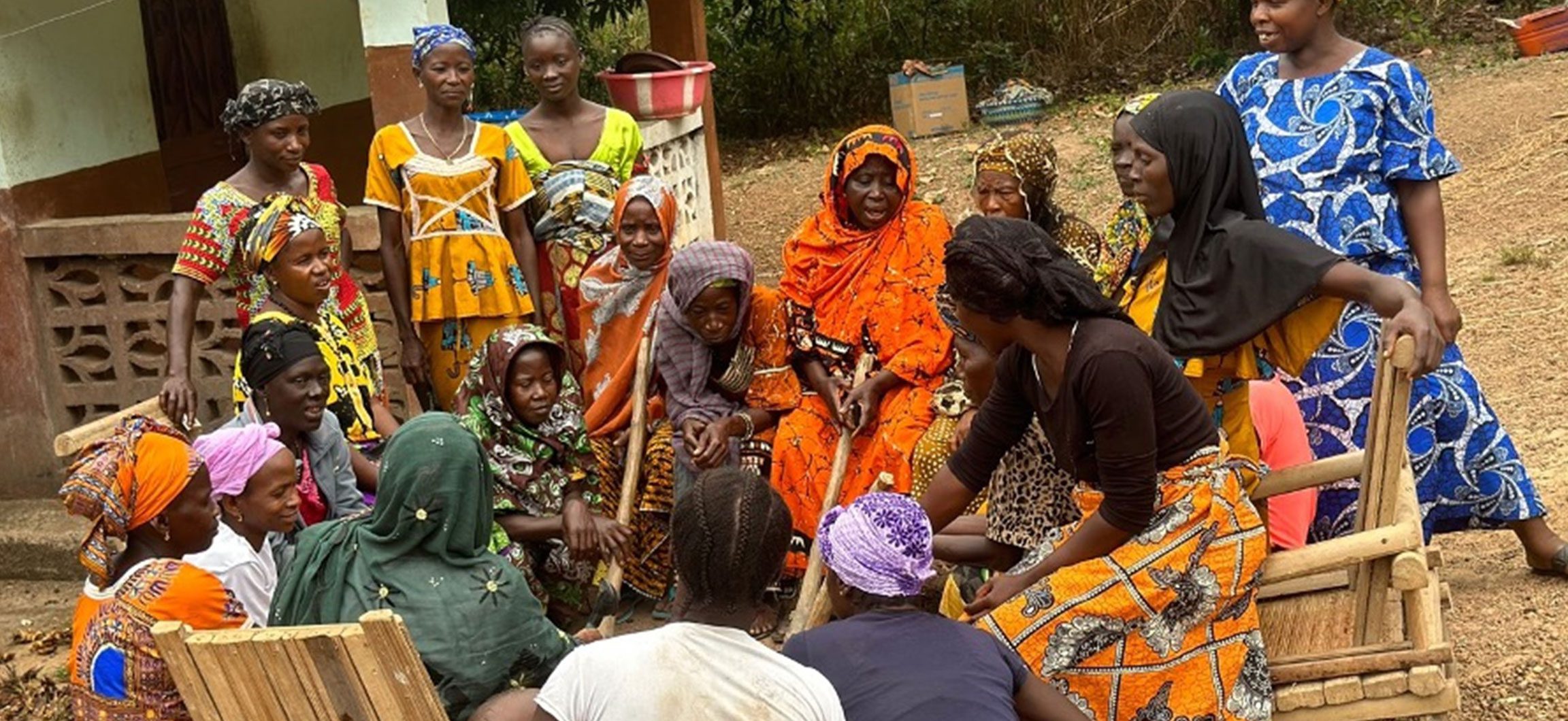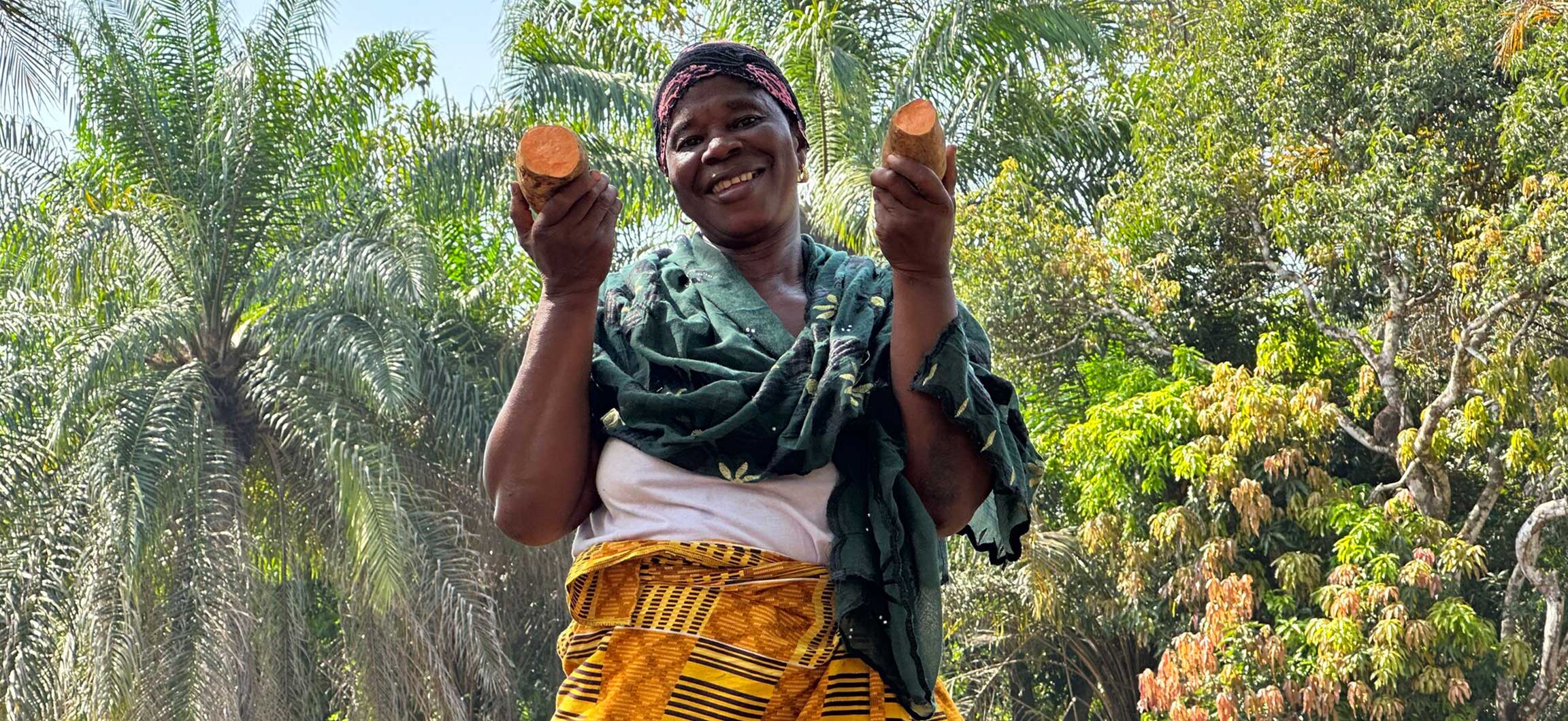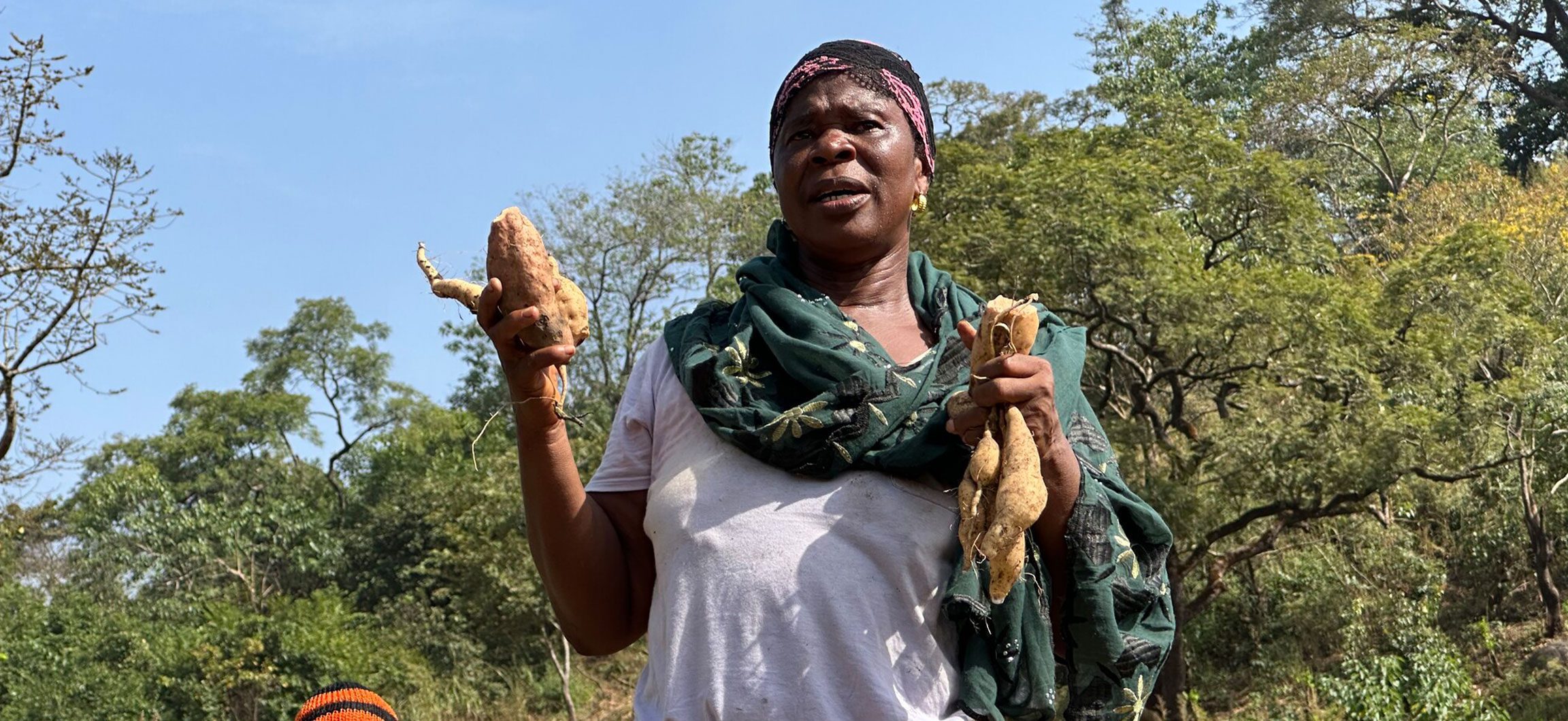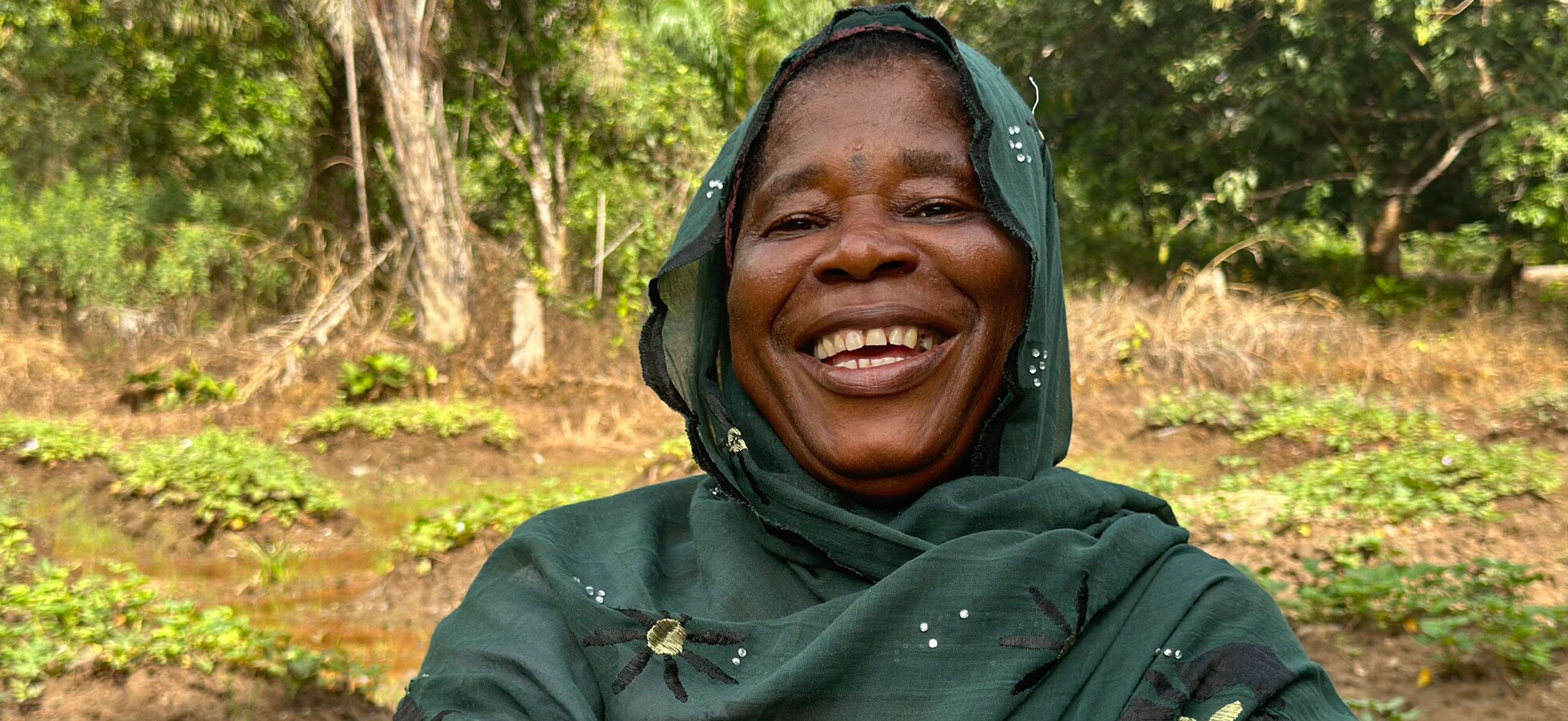Koinadugu Women Fight Hidden Hunger through Farming
On a frosty Sunday morning, a group of farmers wearing brightly colored African waist scarves, called lappas, gather together in front of Haja Conteh’s house in the Koinadugu district of Sierra Leone. The all-women farmers group, called “Denkola Two Women in Agriculture,” are planning their harvest of orange-fleshed sweet potatoes on the three-hectare farm they collectively own to fight hidden hunger.

Orange-fleshed sweet potatoes are superfoods, known for their high nutritional value, especially vitamin A. Known to be the leading cause of child blindness, a deficiency in vitamin A can condemn a child to lifelong, irreversible damage, preventing them from attaining their true potential. Ensuring children get enough vitamin A through foods like sweet potatoes, leafy greens, mangos, and eggs or, receive vitamin A supplementation every six months until they’re five, helps them grow up healthy and strong.
Orange-fleshed sweet potatoes also address another growing concern in Sierra Leone and sub-Sahara Africa: hidden hunger.
Nutrient Rich Foods Fight Hidden Hunger
Hidden hunger is a new kind of hunger – caused not by lack of food but by food that lacks essential micronutrients. Foods without these micronutrients lack vitamins and minerals like iodine, vitamin A, iron, zinc, and calcium – necessary for growth and development.
“Hunger is common in this part of the country,” says leader, Haja Conteh. “Our group is growing the [orange-fleshed sweet] potatoes to fight and fix it with all our might.”
Nearly 80% of the Sierra Leoneans’ diets are composed mainly of foods that lack vital micronutrients because these nutrient dense foods are often costly and difficult to find. Helen Keller Intl provides the necessary tools and farming techniques to farmers, especially women, who are often the first victims of hidden hunger, to grow vitamin A rich food to improve their diets.
Returning to Haja’s Roots

Haja remembers growing up in a household that solely depended on agriculture for their daily sustenance. However, quick money-making business ventures like petty trading almost swayed her away from pursuing the agricultural footsteps of her parents.
As she aged, and single-handedly shouldered the responsibility of caring for the extended family left by her late husband, she witnessed firsthand how hunger and malnutrition ravage families – particularly women and children. Since then, she had sworn to one day return to agriculture but she didn’t know when, how, or where to start.
Tuning In: Using Radio to Learn Farming
Four years ago, Helen Keller, with the support of Irish Aid, began working with Sierra Leone’s Ministry of Agriculture to support women with tools and education to grow nutritious foods in the Koinadugu district.

Helen Keller Project Officer, Jobson Mammie, explained that they used a local FM radio station to educate people about the health benefits of the orange-fleshed sweet potatoes program and how it addresses underlying causes of hidden hunger.
Haja was one of the thousands of Sierra Leoneans who listened to the broadcast. After reaching out to Jobson, she was connected with Abu Mansaray, the Block Extension Supervisor in her community. Abu guided Haja through the process of forming a group, locating a plot of land, and preparing the site for farming.
[Orange-fleshed sweet potatoes are] easy to grow and do not require back-breaking labor work and can thrive in hard conditions.
Abu Mansaray
“[Orange-fleshed sweet potatoes are] easy to grow and do not require back-breaking labor work and can thrive in hard conditions,” explained Abu. “It takes between two to three months to harvest unlike other tuber crops which take less than six months to harvest.”
Working with Helen Keller, Haja and the Denkola Two Women in Agriculture learned a range of new skills including caring for the crops and veins multiplication, using irrigation machines to ensure quality soil, building hand-dug wells to ensure all-year-round cultivation, and marketing their harvests at local markets.
The Future of Nutrient Rich Farming

Haja and her group are not the only women that have benefitted from the Helen Keller’s farming support. From Kono in the East, to Bo in the South, to Tonkolili in the North, and the Western rural-urban in the West, the Helen Keller supports communities in 10 of the 16 districts in Sierra Leone.
We love this potato…it increases our earning power and above all with its rich vitamin A content, it helps reduce chronic malnutrition and improves eyesight for both children and adults.
Haja Conteh
In just five years, more than 122 hectares of previously unused land have been converted to sweet potato farms, yielding over 900 metric tons. We’ve reached an estimated 800 farmers’ groups and their families with vitamin-enriched food that build healthy immune systems and protect children and adults from blindness and serious sickness.
“We love this potato. It increases our earning power and above all with its rich vitamin A content, it helps reduce chronic malnutrition and improves eyesight for both children and adults,” concludes Haja Conteh.
Thanks to our generous community of supporters, Helen Keller Intl has reached more than 2 million households across Africa and Asia. Last year alone, we provided 388,000 families with education and tools to grow, prepare, and sell micronutrient-rich foods.

You too can help fight hidden hunger.









